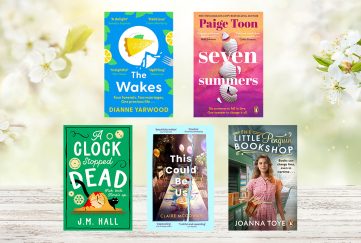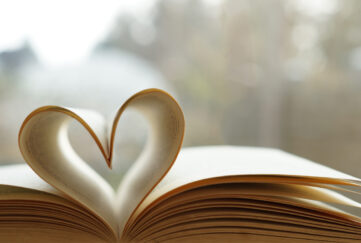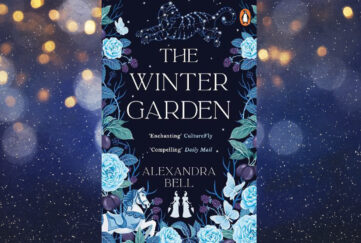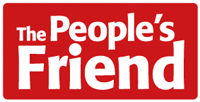Book Review: “A History Of Women In 100 Objects”
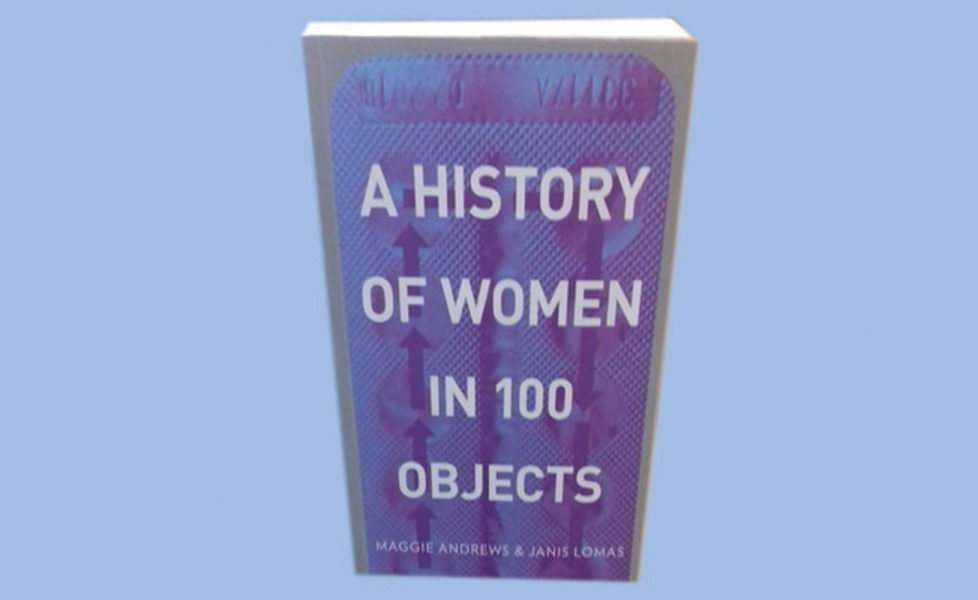
I’m reviewing a non-fiction book this time: “A History Of Women In 100 Objects”, by Maggie Andrews and Janis Lomas.
What a fascinating read!
Each chapter deals with one object, and discusses the woman and the history behind it, as well as where it fits into the history of women in general.
The book is split into eight sections, each dealing with an aspect of women’s shared history. These ranging from science, technology and medicine, to fashion and costumes, and women’s work and employment.
We start with the “first lady” and “grandmother of humanity” – Lucy.
In 1974, a team of palaeontologists working in Ethiopia discovered the skeleton of Lucy, who was essentially a “half-way house” between man and ape.
Lucy was named for the Beatles’ song, “Lucy In The Sky With Diamonds”, which was on the radio the evening the team celebrated their amazing find.
As then-President Barack Obama said, Lucy is “a reminder that the world’s people are part of the same human family”.
The Foundling Hospital
The chapter on the London Foundling Hospital Token is poignant.
These tokens were mementoes left by mothers who had no choice but to leave their babies in the hospital’s care.
Only two mothers ever reclaimed their children. Looking at all the little mementoes reminds us these were real people, whose lives just hadn’t quite turned out as they had hoped.
Many chapters are a reminder of just how difficult life has been for women, simply because they were women. The chapter on the invention of sanitary towels was an eye-opener.
These were first produced in the UK in 1888. That’s only four or five generations ago! It’s a reminder, too, that many women today are still denied access to sanitary protection, often through poverty.
Silenced with the “scold’s bridle”
Going back in time, society sometimes silenced “unruly” women’s voices with the “scold’s bridle”.
An iron contraption was placed over the wearer’s head, with a protruding piece of metal which fitted in the mouth, immobilising the tongue.
Mrs Fawcett and Mrs Beeton
In the 19th century, Mrs Fawcett’s bag would come to represent the legal position of women as having essentially no rights, other than those afforded to their husbands. A theft from this bag would prove to be the catalyst for the campaign for women’s suffrage.
“Mrs Beeton’s Book Of Household Management” has a chapter, as does a Roman tap from Pompeii, the contraceptive pill, the electric fridge, the typewriter, and the sewing machine – all game-changers for women.
Mary Anning And Marie Curie
Mary Anning’s fossil of Plesiosaurus and Marie Curie’s desk remind us of the amazing contribution women have made in so many fields.
A postage stamp featuring Mary Wollstonecraft; Anne Frank’s diary; and Artemisia Gentileschi’s “Judith And Holofernes” are sobering reminders of the struggles many women have faced throughout history.
Queen Victoria’s style-setting white wedding dress; a Mary Quant cape; and Marilyn Monroe’s subway dress feature in the “Fashions And Costumes” section.
We also consider the success of ‘Woman’ magazine, first sold in Britain in 1937. Part of an explosion in women’s magazines in the inter-war years, it would go on to sell 2.5 million copies per issue in its heyday.
Margaret And Mary, Billie And Rosa
Women in politics feature, from Hatshepsut to Margaret Thatcher.
We see the death warrant of Mary, Queen of Scots, and Rosa Parks’s mugshot.
The authors represent the challenges faced by women of colour, with objects like Billie Holliday’s recording of “Strange Fruit”, and the bill of sale for a slave girl.
They also feature an anti-slavery medallion, movingly engraved with the words “Am I Not A Woman And A Sister”?
What an amazing read! History told through objects. A little like Dr Neil MacGregor’s “A History Of The World In 100 Objects”, which you may have heard on BBC Radio 4.
Wonderful, and a thoroughly recommended read.
For more book reviews from “The People’s Friend”, click here.
Looking for a copy of “A History Of Women In 100 Objects”? Why not support local, independent booksellers and order it from Bookshop.org?


